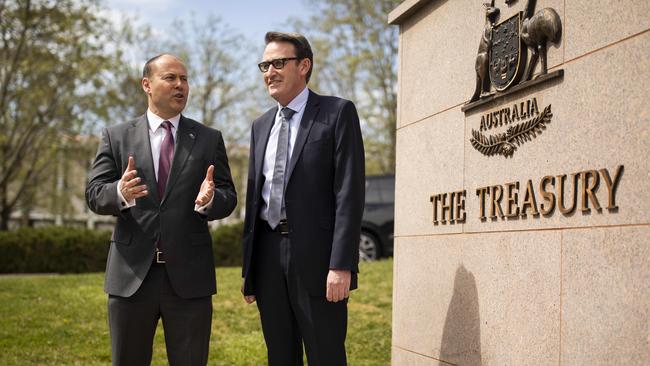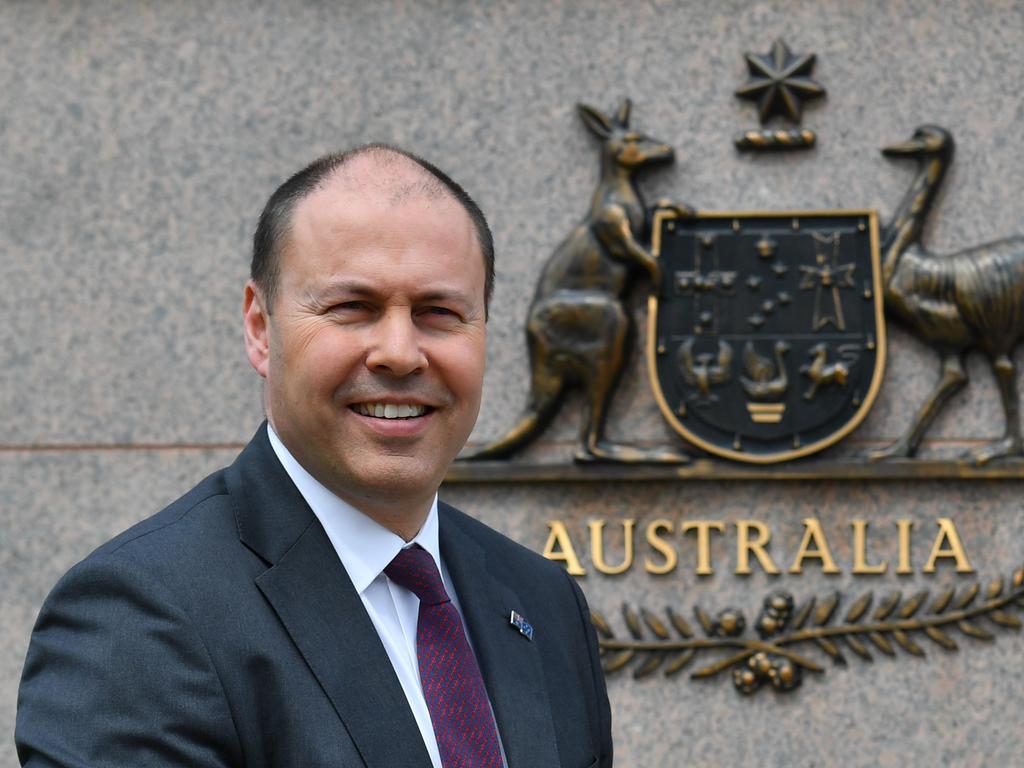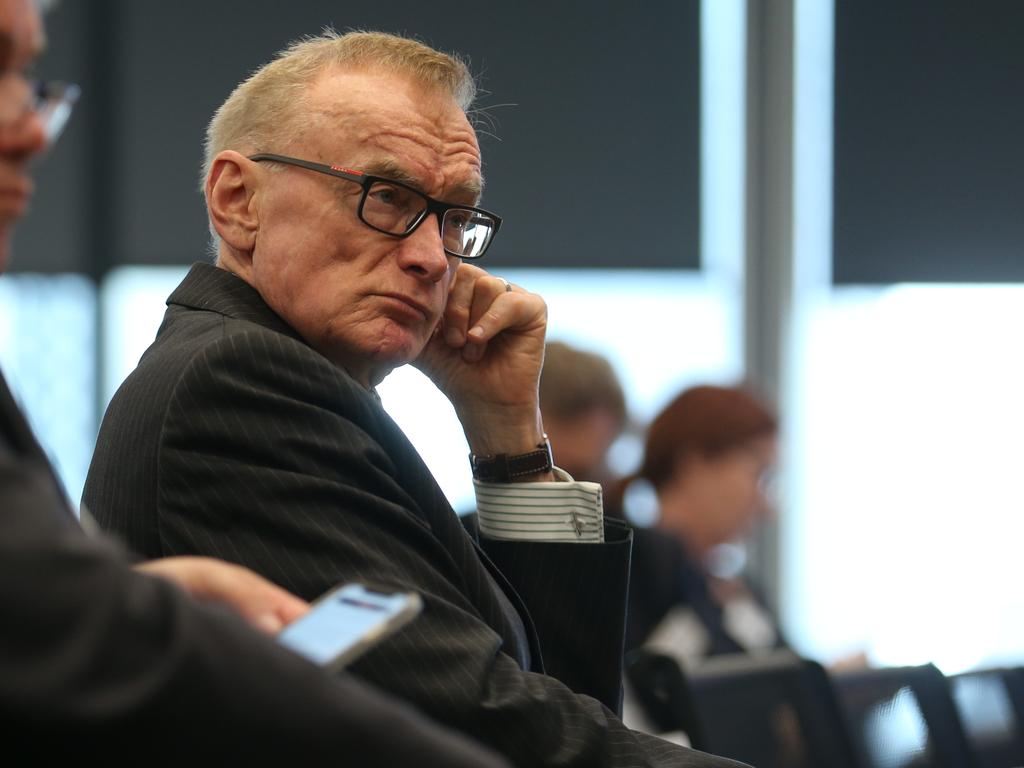
NAB said conditions last month were back to levels at the start of COVID, which weren’t great, but certainly better than in the COVID trough.
Granted, the government has thrown circa $285bn at the economy this financial year and last, so you would expect some signs of life.
The unprecedented string of policy announcements in recent weeks, right down to Monday’s $7.5bn in infrastructure spending, is aimed at (a) showing the government doing something and (b) trying to boost business confidence.
So far at least it’s working, with confidence in the NAB survey up four points to minus four, which is well above the negative 70 back in April.
A major factor driving that improvement is of course that with the exception of Victoria, the pandemic seems to be under control so a big unknown is contained.
NAB figures this calendar year the economy will be down 4.5 per cent and next year up 2.5 per cent, so the world as we know it is not quite over.
There are a few hurdles to clear yet, but while business conditions in Victoria are down 13 points, in Western Australia they are up 25 points, so outside the hot spots there is life. This is a more positive backdrop to today’s budget.
If as expected the government brings forward tax cuts and that money is actually spent, then the impact of the direct JobKeeper shutdown will be partially offset.
Business confidence is important because that means more employment growth, and this is needed more at the big end of town.
The government is reportedly looking at introducing a tax loss carry-back, as flagged here last month by PwC’s Tom Seymour.
The idea is that if a company loses money this year, instead of claiming losses in coming years it can claim back a portion of the tax paid last year, in proportion to the amount left in the franking account (taxes paid less dividends paid).
Deloitte’s David Watkins takes this a step forward to investment allowances, which are paid as a deduction from present year taxes.
If the company is losing money due to COVID then the investment allowance is added to the loss provision, which increases the amount of refunds under the loss carry-back provision.
That way the amount of cash a company has to spend today is increased and the government doesn’t lose money because the loss deductions would have been climbed for the next year in any case.
It remains to be seen whether Treasurer Josh Frydenberg revives the albeit brief Gillard government initiative from back in 2011.
Amid the flood of red ink today, the bottom line from the NAB survey is there is life left in the Australian economy, and as big as the debts are they are a fraction of the post-WWII levels on a debt to GDP ratio at around 35 per cent against 120 per cent.
Landlord support
The focus is Tuesday’s budget but around the corporate undertaker traps the potential minefields grow by the day.
This all assumes that as home loan deferrals expire at the end of March, combined with the reductions in JobKeeper and JobSeeker and no improvements in employment opportunities, things will be tougher next year than the macro numbers suggest.
One example: a landlord of a retail strip has two coffee shops and one restaurant with all three in various degrees of stress because of the COVID restrictions amid a dismal economy.
You reach an agreement with the shops to pay lower rent for 12 months but that means the value of the shopping strip falls below the value of your loan.
The government has measures in place to help the shops, but how about the landlord — does the bank offer some sort of debt moratorium to ease the load?
Private agreement is by far the best alternative, but the bank probably has a string of similar situations and if the landlord was a big player like Scentre the last thing it wants is to create some sort of precedent.
That simply invites other tenants to seek waivers.
There is only so much the government can do, but it should be noted the Canadian government provides landlords with rent assistance under its Emergency Rent Assistance program.
Clearly all the special policy to help small businesses doesn’t help in this situation, so it comes down to how the banks play it.
Bonus barney
A disturbing trend has emerged heading into the annual meeting season, with companies cutting the potential amount granted to executives in long-term pay in exchange for zero hurdles.
Origin tried but yesterday confided it would withdraw its attempt to hand chief Frank Calabria $1.6m in deferred equity with no hurdle.
The board said in future years it would reinstate a hurdle on long-term equity grants, which should satisfy shareholder concerns.
CBA managed to convince two of the proxy forms, Ownership Matters and CGI Glass Lewis, to approve its proposed grant of $1.6m in long-term equity to chief Matt Comyn.
ISS opposes the grant because it hands the executive equity without a hurdle.
In effect, so long as the chief executive doesn’t shoot someone for the next four years then the long-term stock is theirs.
If the aim is to align management with shareholders then it makes more sense to include a total shareholder return benchmark for long-term pay.
Some companies like Seek have cut short-term bonuses in favour of higher fixed pay and higher long-term incentives based on stockmarket returns.
The Australian reported ISS had opposed the Calabria long-term grant.
Over the last decade Origin has underperformed the market by 177 per cent in total shareholder returns, which makes it hard for executives to satisfy performance hurdles.
But it does align executives with shareholders who have suffered equally.
Origin now earns around 50 per cent of its profit from its APLNG gas venture in Gladstone which means its stock price tends to be based around the oil price.
This is outside executive control, which is why the board tried to drop total return hurdles for long-term pay.
But simply cutting the amount at risk doesn’t work, especially when Calabria earned $3.6m last year in fixed pay and short-term bonus.
Calabria and retail boss Jon Briskin are revolutionising retail customer relations management which should translate into better long-term profits.








On budget eve the September NAB business survey showed some signs of life, suggesting the federal government campaign to boost confidence is having some impact.